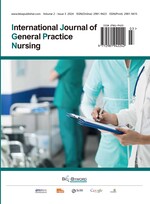Abstract
Objective: To study and investigate the impact of the role of reflective teaching to midwifery students on the development of their critical thinking skills. Methods: 60 midwifery students were selected as research subjects, with 30 midwifery students in midwifery class 1 receiving traditional teaching methods and were classified as the control group. The other 30 midwifery students in midwifery class 2 received reflective teaching and were classified as the training group. The study compared the critical thinking ability scores, incremental critical thinking ability scores, post-training assessment scores, and satisfaction with the teaching between the two groups before and after the training. Results: Before training, the comparison of the critical thinking ability scores of midwifery students in the two groups was not statistically significant (P > 0.05); after training, the critical thinking ability scores of midwifery students in the two groups were effectively improved (P < 0.05). The total score of critical thinking ability in the training group was higher than that of the control group (P < 0.05); the degree of improvement of critical thinking ability in the training group was greater than that of the control group (P < 0.05); the assessment scores of the training group were higher than those of the control group (P < 0.05); and the satisfaction rate of the effect of teaching midwifery students in the training group was higher than that of the control group (P < 0.05). Conclusion: Reflective teaching training for midwifery students can help to improve teaching quality and training effect, promote midwifery students’ critical thinking ability and professionalism, and gain recognition from midwifery students.
References
Liu YX, 2020, Observation of the Effect of Training to Improve the Critical Thinking Ability of New Obstetric Nurses with Core Competence as the Theoretical Framework. General Practice Nursing, 18(31): 4351–4353.
Westerdahl F, Carlson E, Wennick A, et al., 2020, Investigators at Malmo University Have Reported New Data on Health and Medicine (Teaching Strategies and Outcome Assessments Targeting Critical Thinking in Bachelor Nursing Students: A Scoping Review Protocol). Information Technology Newsweekly, 23(3): 1457–1459
Wang LJ, Qiu XD, Jiang LP, et al., 2023 A Study on the Correlation between Nurses’ Information Literacy and Critical Thinking Skills. Chinese Family Medicine, 21(1): 163–166.
Li W, Li M, Li FY, et al., 2023, Application of Micro-inquiry Teaching Mode in Undergraduate Midwifery Virtual Simulation Laboratory Project. Chinese Nursing Education, 20(2): 140–145.
Qin M, Wei F, Yang L, 2020, Application of Reflective Teaching Mode in Gynaecological Nursing Teaching. Practical Gynaecological Endocrinology Electronic Journal, 7(18): 149–162.
Zhang ZX, Zhan DH, Chen HM, et al., 2022, Discussion on the Status Quo and Development Countermeasures of Midwives’ Professional Competence. China Health Talent, 2022(7): 64–67.
Peng MC, Wang GC, Chen JL, et al., 2004, A Study on the Reliability Test of the Critical Thinking Skills Measurement Scale. Chinese Nursing Journal, 39(9): 644–647.
Zhang XL, Yang JP, Lin Jingjing, et al., 2022, A Bibliometric-based Study on the Current Status and Hotspots of Midwife Training in China. General Practice Nursing, 20(34): 4766–4771.
Zhang XL, Yang JP, Lin RJ, 2022, Progress of Clinical Training of Midwives at Home and Abroad. China Clinical Nursing, 14(9): 587–590.
Nuraeni, Suriana, Muliana, et al., 2020, Stimulation of Early Detection and Intervention of Child Development (SEDICD) Integrated with Midwife Credit Scores on the Improvement of Web-based Toddler’s Health Services. Enfermeria Clinica, 30(2): 1256–1258.
Huang GH, Jiang GY, Yu MX, 2022, Effectiveness of Midwife-led Pain Intervention and Graded Empowerment Management in Primiparous Women. Chinese and Foreign Medical Research, 20(4): 85–88.
Baba A, Theobald S, Martineau T, et al., 2020, Being a Midwife is being Prepared to Help Women in Very Difficult Conditions: Midwives’ Experiences of Working in the Rural and Fragile Settings of Ituri Province, Democratic Republic of Congo. Rural and Remote Health, 20(2): 124–126
Wang X, Ni ZH, Yao WY, 2020, Analysis of New Nurse Training Reform and 360-degree Feedback Evaluation Results. China Nursing Management, 23(3): 471–475.
Luo XM, Li XT, Peng KL, et al., 2020, Analysis of Factors Affecting Critical Thinking Skills of Nursing Trainees. Contemporary Nurses(Lower Decade), 27(7): 56–59.
Liu EF, 2020, The Application of Critical Thinking in Obstetrics Clinical Nursing Teaching. Contemporary Nurses (Lower Decade), 27(8): 164–165.
